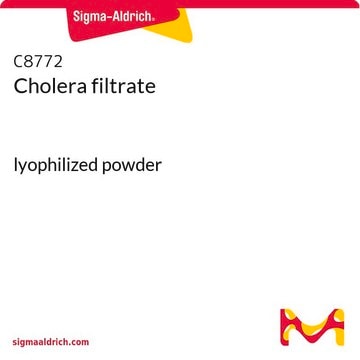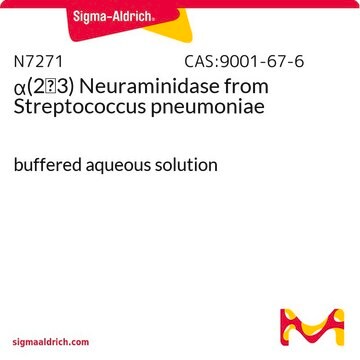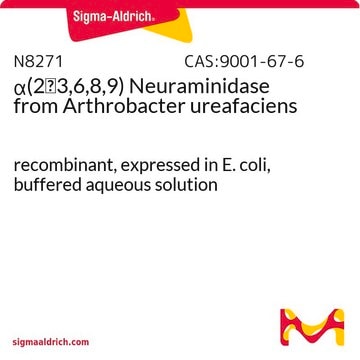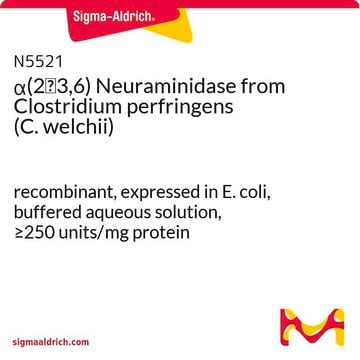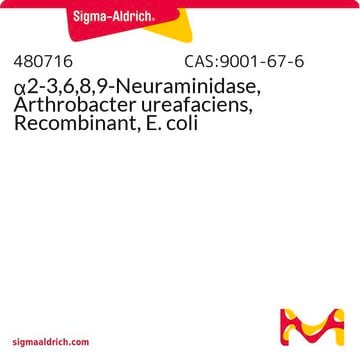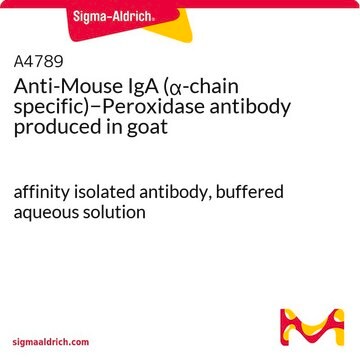N6514
Neuraminidase from Vibrio cholerae
Type II, buffered aqueous solution, 8-24 units/mg protein (Lowry, using NAN-lactose)
Synonyme(s) :
Acyl-neuraminyl Hydrolase, Receptor-destroying enzyme, Sialidase
About This Item
Produits recommandés
Source biologique
Vibrio cholerae
Niveau de qualité
Type
Type II
Forme
buffered aqueous solution
Activité spécifique
8-24 units/mg protein (Lowry, using NAN-lactose)
Activité étrangère
Protease and NAN-aldolase, present
Température de stockage
2-8°C
Vous recherchez des produits similaires ? Visite Guide de comparaison des produits
Description générale
Application
Qualité
Définition de l'unité
Forme physique
Notes préparatoires
Mention d'avertissement
Danger
Mentions de danger
Conseils de prudence
Classification des risques
Resp. Sens. 1
Code de la classe de stockage
10 - Combustible liquids
Classe de danger pour l'eau (WGK)
WGK 1
Point d'éclair (°F)
Not applicable
Point d'éclair (°C)
Not applicable
Équipement de protection individuelle
Eyeshields, Gloves, type N95 (US)
Certificats d'analyse (COA)
Recherchez un Certificats d'analyse (COA) en saisissant le numéro de lot du produit. Les numéros de lot figurent sur l'étiquette du produit après les mots "Lot" ou "Batch".
Déjà en possession de ce produit ?
Retrouvez la documentation relative aux produits que vous avez récemment achetés dans la Bibliothèque de documents.
Les clients ont également consulté
Notre équipe de scientifiques dispose d'une expérience dans tous les secteurs de la recherche, notamment en sciences de la vie, science des matériaux, synthèse chimique, chromatographie, analyse et dans de nombreux autres domaines..
Contacter notre Service technique


